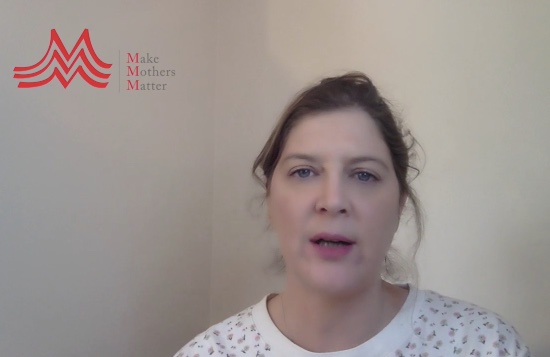Time for an economic system that values and supports care
22.01.22
UN Geneva, Human Rights Council - The pandemic has exposed the crucial importance of Care for our collective wellbeing and the essential role parents, and in particular mothers, play in maintaining this within families. In an oral statement to an intersessional meeting of the Council, we reiterated our call to seize this opportunity to transition to a wellbeing economy - an economy that prioritizes the wellbeing of people and the planet - with care and education at its heart.

Before the pandemic, women – especially mothers – were already more represented in informal work and less likely to have access to social protection, paid less than men and over-represented in poverty statistics.
The crisis only worsened their situation. But it was also an eye-opener…
- Revealing how Care is central to our lives, and that whether paid or unpaid, this essential work is not properly recognized and valued in our society and economy
- Highlighting that most of the unpaid family care work falls on the shoulders of women, and that this inequitable distribution is a cause of economic hardship and injustice
- Exposing major gaps in social protection, and the inadequacy of current systems to recognize and support the invisible economy of unpaid caregiving within families and communities
We now have a unique opportunity to address and transform these systemic failures. This begins by changing narratives and shifting paradigms.
Governments must now:
- Recognise unpaid care work as essential work and a collective responsibility, benefitting the whole of society across generations and sustaining the economy
- Consider universal social protection to support parents and families as a high-return investment in people, not an expense to be minimized
- Acknowledge that the multiple crises we face today (Covid-19, but also climate change, environmental degradation, rising inequalities…) are all deeply rooted in an economic system that fails to recognize, value, protect, and invest in what’s essential to our wellbeing – Care.
We must move beyond the ‘GDP growth’ narrative, and repurpose our economic system to prioritize the long-term wellbeing of people and the planet. A few governments (Finland, Iceland, New Zealand, Scotland and Wales) are showing us the way. It is time to transition to a wellbeing economy – with care and education at its heart.
![]() MMM oral statement for download
MMM oral statement for download
Mélanie Nédélec, MMM Representative at the United Nations in Geneva, delivered this statement at the Human Rights Council’s intersessional meeting on 18 January 2022. Part of a series on human rights and the 2030 development agenda, this fourth meeting focused on ‘Investing in sustainable recovery, advancing gender equality and strengthening partnerships – Towards a renewed social contract anchored in human rights’.
See also
- Our written statement to the upcoming UN Commission on Social Development (CSocD66)
- The report of our 2021 HLPF side-event on Changing narratives about unpaid care work and the economy
The New EU Gender Equality Roadmap : A Call for Inclusion of Mothers
04.03.25
The European Commission’s initiative on a new Gender Equality Roadmap post-2025, marks a significant step forward in addressing gender disparities across the European Union. Make Mothers Matter (MMM
Breaking the Cycle: Gender Equality as a Path to Better Mental Health
18.03.25
The Council of the European Union has taken a decisive step in recognising the vital connection between gender equality and mental health.
Europe Must Listen to Mothers: Our landmark report heads to the European Parliament
28.08.25
On 22 September 2025, the voices of mothers will take centre stage in Brussels. For the first time, Make Mothers Matter (MMM) will present its State of Motherhood in Europe








